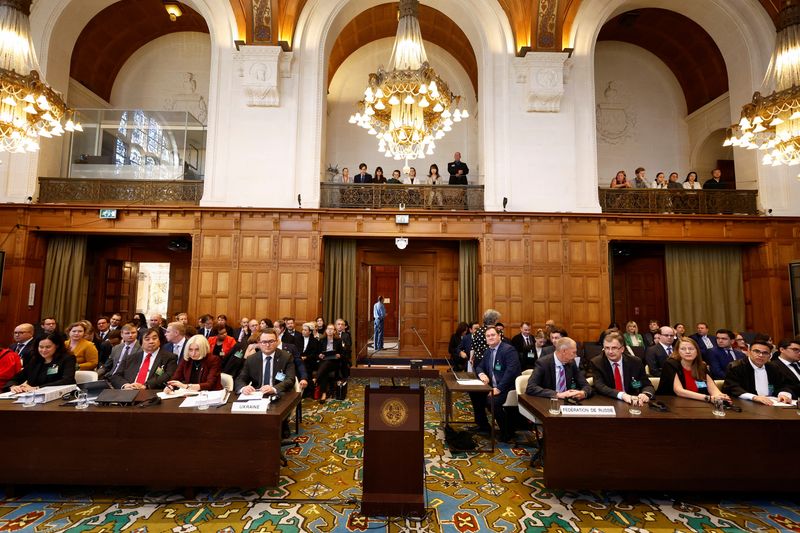By Stephanie van den Berg
THE HAGUE (Reuters) -Ukraine told the U.N.'s highest court in The Hague on Tuesday that Russia justified waging war against Ukraine by invoking "a terrible lie" that Moscow's invasion was to stop an alleged genocide.
"The international community adopted the Genocide Convention to protect. Russia invokes the Genocide convention to destroy," Ukraine's representative Anton Korynevych told judges.
He called on the International Court of Justice (ICJ) to decide that it has jurisdiction to hear the case fully and eventually rule that Russia must pay reparations for invading under a false pretext.
"Can a state use false allegations of genocide as a pretext to destroy cities, bomb civilians and deport children from their homes? When the Genocide Convention is so cynically abused, is this court powerless? The answer to these questions must be 'no'," Korynevych said.
On Monday, Russia urged the ICJ, also known as the World Court, to throw out the case, claiming Kyiv's legal arguments were "hopelessly flawed".
Ukraine brought the case before the ICJ, also known as the World Court, days after the Russian invasion on Feb. 24 last year.
Kyiv argues Russia is abusing international law by saying the invasion was justified to stop an alleged genocide in eastern Ukraine.
Ukraine says there was no risk of genocide in eastern Ukraine, where it had been fighting Russian-backed forces since 2014. The convention defines genocide as crimes committed "with intent to destroy, in whole or in part, a national, ethnical, racial or religious group, as such".
Ukraine has already cleared one hurdle as the court decided in its favour in a preliminary decision in the case in March last year. Based on that, the court ordered Russia to cease military actions in Ukraine immediately.
Russia has so far ignored the ICJ's orders to stop its military actions and the court has no way of enforcing its decisions. Experts say a full ruling in favour of Ukraine can pave the way for compensation payments.

Korynevych told journalists after the hearing Tuesday that reparations were a key issue for Ukraine in this case. However, any discussion about amounts and implementation "we will be dealing with further on", he said.
The hearings, set to run until Sept. 27, will not delve into the merits of the case, but will instead focus on legal arguments about jurisdiction. The court is expected to rule if the case can go forward in several months.